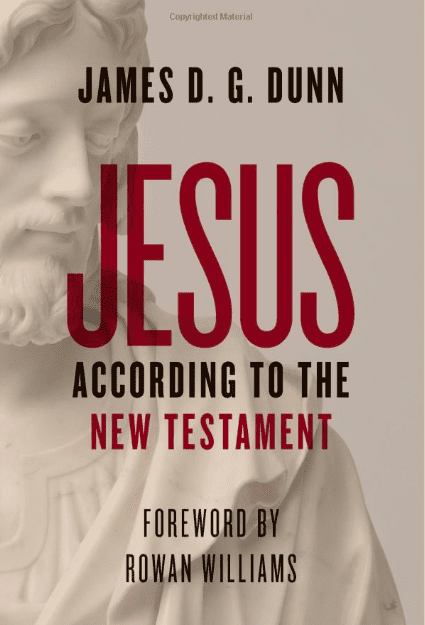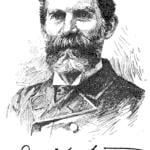The Gift of Renewal: A simple way that Church Leaders can Renew Their Pastor.
By Tommy Phillips
Tommy is a pastor in Tampa FL, well known musician and band leader,
and leader of one creative church.
Pastors spend allot of time reading, and reading widely from many Christian traditions and as well as trying to keep up with the academia. This is necessary because there are theological shifts that take place in Christendom, and these shifts usually start off in academia and make their way down to the pastors of small churches via books, blogs, and the occasional conversation with professors and armchair theologians that attend their churches.
Over time it is easy to become a bit of a theological hoarder as all of these thoughts and ideas can begin to pile up on the metaphorical floors of the theological house of the Pastor, and men and women in Pastoral ministry begin start to lose their bearings, their theological center, if you will .
This was me. After serving in the same church for 16 years, 13 of them as Senior Pastor, I hadn’t spent time in a formal classroom setting in 20 years. My theological house had become overwhelmingly cluttered and confusing. In that amount of time I had seen the rise and fall of both the Emergent, and the New Reformed church. I had also watched the Purpose Driven church, and the Church Growth movement launch, grow, and shrink, and with every movement, dozens more reactionary shifts happened in the church of the postmodern age. I had seen deconstruction, pluralization, I had watched my friends and my own pastor walk away from the faith, and I had doubts, disappointments, and questions. I had so many questions.
This is where seminary came in for me. I needed refresh. I needed to learn from someone other than some author that I had never met and whom I could not volley in questions with. I needed theologians to walk with me for a little while and help me make sense of what I had seen. And most of all, I needed to sit under some scholars who had a very long history of serving the church, and who still believed that, despite its failures and divisions, the church is good, necessary, and capable of changing the world.
These are the things brought me back into academics in general, and Northern Seminary in particular. So, rather briefly, here is what I have gained there:
The very first week of intensives was like breathing fresh mountain air for the first time in years. Pretty quickly I was able to see how all of these bits and pieces of scholarship, theory, theology and philosophy that I had gathered over two decades of reading and preaching fit together. I began to make connections between specific theological movements and the thoughts that they brought to the church’s table. I began to truly understand why different cultures and contexts read the text differently and I began to appreciate the diversity in the universal church and the roles that they play in the extended body of Christ.
I could see the veins that ran through the universal church, and through my own diverse community. I began to understand why one person would read a passage and see one thing, and the person next to them would come to a completely different conclusion, and suddenly I knew how to speak to both of them. My trepidations to delve into Black-Liberation, Womanist, and Grassroots Asian theology began to fall away as I started to understand not just what they were doing with the text, but why. Everything that I had read and interacted with now suddenly had a home and place in my work, and I became a better pastor to more people because of it.
Affirmation is not just underrated, it is necessary. Pastors deal with allot of pushback based upon the things that they teach from the pulpit. The very nature of the job demands that Pastors regularly challenge the long-standing traditions of the people in their communities. When they do this work, they may receive criticism ranging from a simple “I disagree,” all the way to “you’re a heretic and I’m leaving.” No matter how many books you have read or how much you understand a topic, after enough criticism and enough painful departures, a man or a woman of God can begin to doubt the very message that God has placed them there to proclaim. With a lack of affirmation, the ability to push the church forward begins to be lost and the pastor may begin to believe that they are in the wrong field; that maybe someone else should take it from here.
The affirmation that I received in my first couple of years quickly erased years of doubt that I had built up, both about myself and about my faith. I started to remember the importance of experimental thought and wrestling, especially in the church. And after sitting under professors from a wide variety of church traditions and viewpoints, I came to see that I was actually pretty normal, that I wasn’t the only one reading the scriptures this way, and that I should indeed keep pushing my people.
Within a couple of months of guided, focused study, I had regained the confidence that had been worn down over many years of teaching and preaching. I could speak with more authority and I was unbothered and unthreatened by the challenges of others, and actually, I became much more patient, graceful, and long-suffering with them.
You see, a Pastor who doubts their own abilities and whose confidence is waning can easily become defensive when they are challenged. Their fight or flight defense is activated and their anxiety begins to spike. Email exchanges can become terse, confrontations start to be evaded. But It doesn’t take much more for a pastor to regain their confidence in their ability to rightly interpret the scriptures than a professor’s affirmation or correction. When an experienced academic elder gives you good marks and simple nod of approval, years of anxiety and doubt can be washed away.
I am more approachable, less afraid of heavy conversation, and I have become perfectly fine with openly discussing even the most touchy and controversial subjects that the church at large is struggling, or even afraid, to address. My wife, my friends, and my community elders have commented on the change in how I carry myself these days, compared to before, and I point straight towards updating my education as the source of my renewed strength.
A solid education under high end scholars results in a leader who flourishes when others are scared, and who can remain a calm non-anxious presence in the midst of even the most chaotic church. I am now a firm believer that every church should do everything in their power to help their pastors continue their education throughout the entirety of their career. The return on investment cannot be overstated. In a modern church that is constantly seeing burnt-out and shipwrecked pastors and churches, this is one crucial way to help ensure the health of your community.
















